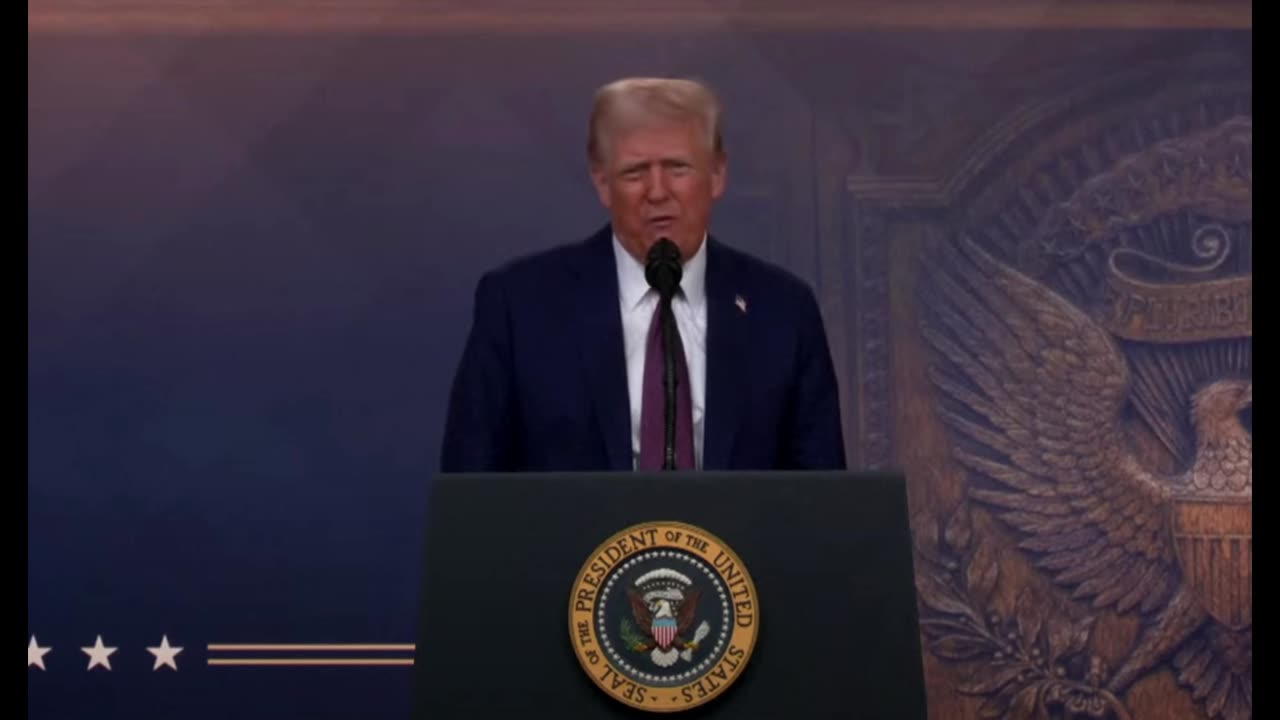Premium Only Content

Trump at Davos WEF: Canada, Join US as 51st State or Face Tax Storm! 🇺🇸🍁
At the 2025 Davos World Economic Forum, President Donald Trump, in a moment that caught global attention, proposed a provocative idea with a calm demeanor and a slight smile: Canada could consider becoming the 51st state of the United States. In his address, Trump emphasized that America is self-sufficient and does not rely on Canadian resources such as lumber, oil, gas, or coal, directly challenging the existing trade dynamics. He pointed out that Canada's current economic practices have been costing the U.S. an estimated $20 billion annually, a figure he used to justify his proposal.
Trump's suggestion was not delivered with the usual confrontational tone associated with his remarks on trade; instead, it was framed as a negotiation tactic, offering Canada a binary choice. On one hand, becoming a U.S. state could lead to an economic boom for both nations, leveraging infrastructure, military support, and tax benefits. On the other hand, if Canada decides to maintain its current economic relationship with the U.S., Trump warned of imposing significant tariffs to counteract what he perceives as an unfair disadvantage to American businesses and consumers.
This proposition has stirred various reactions, with some seeing it as an unprecedented move in international relations, while others view it as a strategic play in the ongoing U.S.-Canada trade discussions. The idea of statehood was presented with a blend of humor and strategic foresight, illustrating Trump's unconventional approach to diplomacy.
The implications of such a proposal extend beyond economics, touching on issues of sovereignty, national identity, and the political landscape of North America. Canadian Prime Minister Justin Trudeau responded by affirming Canada's pride in its national identity, emphasizing that such a move is not on the table. The Canadian public and political spectrum have been discussing the feasibility, benefits, and drawbacks of this idea, with some media outlets exploring the historical context of statehood proposals and the potential economic impacts.
For those interested in delving deeper into this topic, several sources provide insightful analysis:
Reuters has been covering the developments from Davos, offering a comprehensive look at Trump's speech and the immediate reactions.
The Washington Post provides detailed coverage on the political and economic implications, including Trudeau's response to Trump's proposal.
AP News offers a broad perspective on how this proposal fits into Trump's broader economic and foreign policy agenda during his second term.
This moment at Davos not only highlights Trump's approach to international negotiations but also sets the stage for a reevaluation of U.S.-Canada relations in the coming years.
-
 54:47
54:47
Side Scrollers Podcast
1 day agoSide Scroller Presents KING OF THE KART | MASSIVE MARIO KART TOURNAMENT
80.5K2 -
 LIVE
LIVE
Astral Doge Plays!
2 hours agoZelda NES Randomizer ~LIVE!~ Let the Randomization Begin!
71 watching -
 33:18
33:18
Athlete & Artist Show
12 hours ago $2.29 earnedHockey Is Back In Europe!
26.3K3 -
 LIVE
LIVE
Total Horse Channel
5 hours ago2025 URCHA Futurity | Derby & Horse Show | Sunday
150 watching -
 LIVE
LIVE
GhillieSuitGaming
2 hours ago $0.03 earnedThe Evil Within 2: Part 4 - Art Destruction!
57 watching -
 LIVE
LIVE
Chi-Town Gamers Livestreams
2 hours ago $0.01 earnedGears 5 Ep. 4 W/ CTG | Into Kait's Mental Issues | GOW: RELOADED LATER & SHENANIGANS 😎
32 watching -
 LIVE
LIVE
Scottish Viking Gaming
5 hours agoSUNDAY FUNDAY :|: Still in the original packaging! Mint!
24 watching -
 2:20:14
2:20:14
LumpyPotatoX2
3 hours agoKOMPETE: Quick Gameplay - #RumbleGaming
11.6K1 -
 2:16:57
2:16:57
XxXAztecwarrior
4 hours agoSearching for more Reds!!
14.1K -
 2:44:34
2:44:34
TheItalianCEO
4 hours agoWhat about an Italian for breakfast?
19.1K1